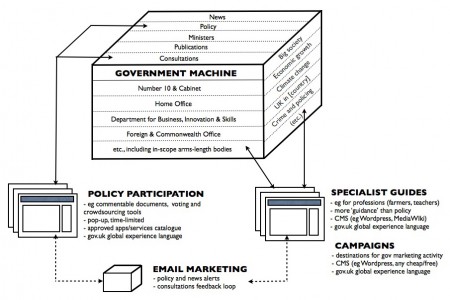
TechCityUK.com is a website produced by UK Trade & Investment to promote the ‘entrepreneurial cluster’ of technology startups in the Shoreditch / Old Street area of east London. Judging by its blog, it launched on 19 July this year. Google currently reckons it has 89 pages. And according to an FOI response published this morning, it has already cost £53,351.
The FOI enquiry, by Milo Yiannopoulos, revealed the following breakdown:
- £37,000 for website development and hosting
- £9,595 for content and
- £6,756 for security and penetration testing
The site is built on WordPress, and runs as a child theme of Twenty Eleven. On the face of it, it’s a very high figure for a fairly straightforward WordPress build – but it’s a pity the costs haven’t been broken down a bit further. Without a better breakdown, I’m reluctant to join the wailing and gnashing of teeth at the headline figure; although you’ll find plenty of that on Twitter. But I will say it poses some interesting questions, at the very least.
The stylesheet reveals that it was built by a company called Creativeworks, who list a couple of previous UKTI projects in their portfolio – but conspicuously little online work. (Good spot, Harry.) A traceroute shows it’s currently hosted at Zen Internet, seemingly on a dedicated box (according to a myipneighbors check).
Interestingly, the domain name was registered in March 2011, but was not listed among the three new websites approved by the Cabinet Office in the past year. Presumably because it uses a .com domain name. See, there it is again: the mismatch between ‘new website’ and ‘new domain’. The Cabinet Office press release of last June was quite clear:
As part of the Government’s efficiency drive, all of the existing 820 government funded websites will be subject to a review looking at cost, usage and whether they could share resources better. No new websites will be permitted except for those that pass through a stringent exceptions process for special cases, and are cleared by the Efficiency board which is co-chaired by Mr Maude and Chief Secretary to the Treasury Danny Alexander.
Note: ‘no new websites’. Not ‘no new .gov.uk domain names’. So did the Cabinet Office approve it, and forget to mention it? Or did UKTI not seek permission? Or does that ministerial commitment not actually go any further than new domain names? – and if not, perhaps the press release could be corrected?
The one cost which is broken down sufficiently is the £6,756 spent on security and penetration testing. Or to put it another way, two weeks’ full-time work by a specialist consultant. It’s possible, I suppose, although a bit over-the-top for a fairly basic site containing (as far as I can tell) no personal or confidential information.
I wonder what they did, apart from remove the ‘generator’ line from the page header, and activate SSL on wp-admin? Would it be useful to other departments running their own WordPress installs?
Or is it – finally – time for government to step up, and provide a centrally-managed (and centrally-secured) WordPress multisite installation for such small-scale uses? The £6k security spend wouldn’t have been necessary; and I wonder how much of the £37k could have been saved, too. It’s not that government can’t afford to do this; it can’t afford not to.

